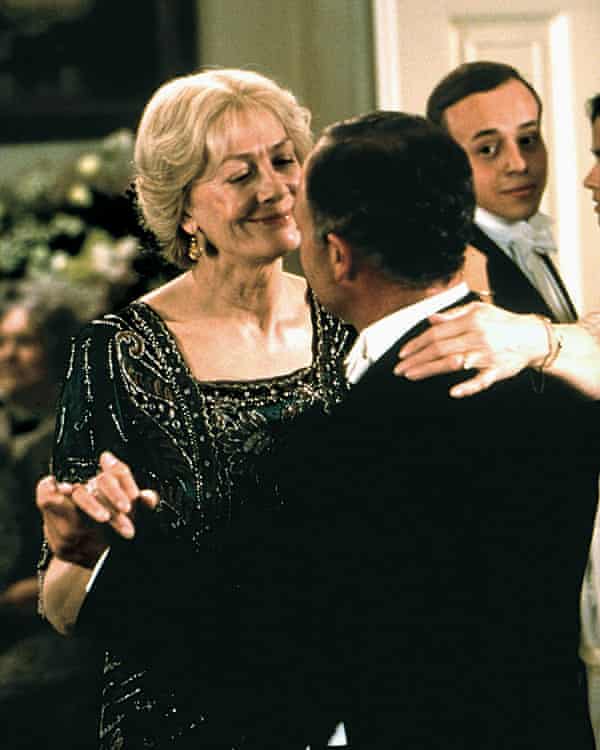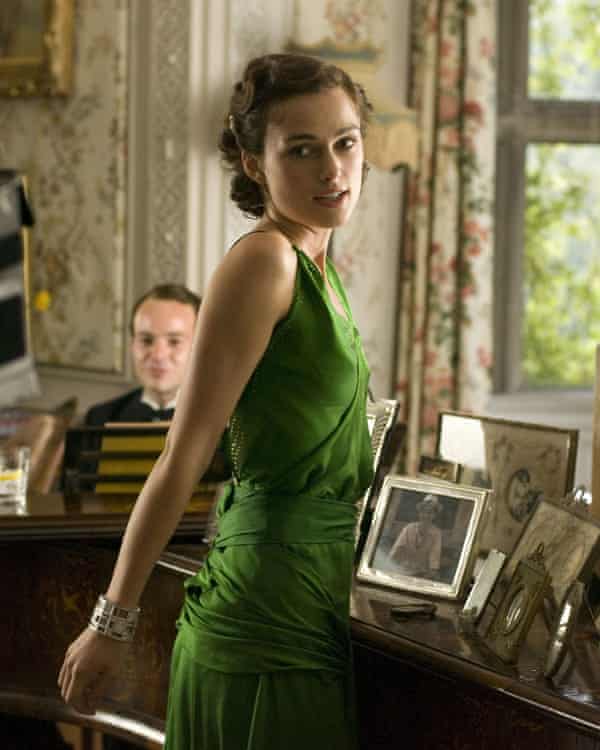Top 10 house parties in fiction | Fiction
[ad_1]
For better or worse, I am a literary Anglophile. My mother was too. As a child I remember peeking over her shoulder at the novels she read after dinner: PG Wodehouse, Ngaio Marsh, all 12 volumes of Anthony Powell. It was with my mother that I first watched Upstairs, Downstairs — I was 10 at the time – and, through it, got an early glimpse of the house party, a phenomenon the sheer Britishness of which enraptured me.
In the sunny and freewheeling Palo Alto of the 1970s and 80s, I read about cold manor houses in which each of the 18 bedrooms had a different hand-blocked wallpaper. I read about midnight assignations in garden pergolas. I read breakfast scenes, billiard-room scenes, scenes in which fraught hostesses laboured over the seating arrangements for formal dinners.
And though, as I grew older, I continued to relish the period details, the descriptions of clothes and furniture, the inevitable digressions about the inadequate heating, I found myself relishing even more the conversations. Iris Murdoch, Muriel Spark, Henry Green, Ivy Compton-Burnett: what these writers share is an instinct for how to move a narrative forward through dialogue. Bring a bunch of characters together, put words in their mouths, and see what happens: this was the formula that I emulated when I wrote Shelter in Place, a novel much of which takes place in a country house where a group of friends have gathered, basically, to eat and talk. (Not in England, however, but in Connecticut.)
In compiling this list, I have tried to do justice to the house-party tradition while expanding its parameters to allow for the inclusion of works that hew to its spirit if not its conventions. Thus most of the novels I have chosen are British – but not all. Most take place in country houses – but not all. Henry Green’s Party Going, for instance, takes place in a hotel – a deviation from the rule that will, I trust, pass muster for those of you who have read this magnificent novel. (For those of you who have not, you have a treat in store.)
Whatever the case, I can think of no better time than the moment we’re living through, when parties of any kind are a wistful memory, to cast a backward glance at these 10 great books. In chronological order:
1. The Decameron by Giovanni Boccaccio (1353)
In the age of Covid-19, where better to start a list of house-party novels than with the book that defines the genre? Fleeing plague in Florence, 10 young aristocrats take refuge in a villa in Fiesole, where they pass the time by telling one another stories. The threat of mortality lends an undercurrent of dread to the tales that comprise this remarkable work, in which storytelling itself is posited as an antidote to mortality.

2. Mrs Dalloway by Virginia Woolf (1925)
Just as Mrs Dalloway may be the most justly famous hostess in literature, so this may be the most justly famous novel to centre on a party. At once deft, rigorous, and deeply sad, Woolf’s great work exposes the private dramas of desire and compromise that underlie and sometimes undermine the rituals of public interaction.
3. Decline and Fall by Evelyn Waugh (1928)
I can’t think of a funnier house party than the one that Margot Beste-Chetwynde throws at her scarily modernist country house, King’s Thursday, and then decides not to attend. My favourite line concerns Margot’s teenage son, Peter, who serves the cocktails: “Downstairs Peter Beste-Chetwynde mixed himself another brandy and soda and turned a page in Havelock Ellis, which, next to The Wind in the Willows, was his favourite book.”
4. Party Going by Henry Green (1939)
This great novel from the 20th-century master of the gerund – his other books include Living, Loving, Doting, Concluding, and Nothing – takes place over the course of just 24 hours but took its author seven years to write. When a heavy fog brings train travel in England to a halt, a group of bright young things retreats to a suite of rooms in a London station hotel, where they proceed to throw a riotous and emotionally fraught party to pass the time until the trains can depart. While Green’s interest in psychology is evidence of his debt to Woolf, The Decameron is in fact the work to which Party Going most strikingly alludes.
5. Dead Man’s Folly by Agatha Christie (1956)
No list of house-party novels would be complete without a house-party murder mystery, nor can I think of any house-party mystery more fun to read this one, in which the featured amusement is a “Murder Hunt”. Although rarely credited for it, Agatha Christie was a gifted comic writer, and this is perhaps her funniest book.
6. Her First American by Lore Segal (1985)
In this, my favourite novel by one of the US’s most enduring and underappreciated writers (still publishing at the age of 92!), Ilka Weissnix – a young Jewish refugee recently arrived in New York from Vienna – stumbles into a love affair with Carter Bayoux, a sixtysomething black intellectual, and, through him, is introduced into a world utterly unlike anything she has known before. Set mostly in New York, Her First American includes a long middle section in which the members of Carter’s circle gather at a summer house in Connecticut – a transatlantic equivalent of the British house party.

7. Atonement by Ian McEwan (2001)
Entertainments gone awry are a common feature of house parties in fiction. Here, the entertainment is a play written by 13-year-old Briony Tallis but wrecked by the cousins she enlists to perform in it – a humiliation that will have lasting repercussions not just for Briony herself but for her sister and her sister’s lover, Robbie Turner. As the novel moves toward its heartbreaking and heart-stopping last chapter, McEwan nudges but doesn’t quite break through fiction’s famous fourth wall.
8. Jesus’ Son by Denis Johnson (1992)
OK, the houses in this harrowing novel-in-stories are mostly abandoned, wrecked, smelling of “dogs and babies”. OK, the guests are junkies habituated to casual torture and inclined to shoot one another for no particular reason. And yet are they really all that different from, say, the elegant and elusive figures sipping champagne at the Dalloway residence? Johnson’s genius lay in his ability to render ugly scenes in language so beautiful that it almost – almost – redeems them.
9. Transit by Rachel Cusk (2016)
In the final movement of this, the middle volume of the Outline trilogy (IMHO, the most important work of fiction to have been published in this century), Cusk’s heroine and alter ego, Faye, drives to a country house in Wiltshire to attend a party at the home of her cousin Lawrence. What follows is a descent into a nightmare, in the course of which Faye watches her cousin, his wife, and their other guests tear one another to pieces. Cusk forgoes facile compassion for the sake of truth-telling, especially at the climactic moment when Lawrence serves trussed “baby chickens” to the children at the party: “The candles flamed around them, streaking them in red and orange light, illuminating their hair and eyes and glinting on their wet cheeks, so that it almost looked as though they were burning.”
10. Conversations With Friends by Sally Rooney (2017)
For me the highlight of this funny, fresh novel is the extended house party in the south of France to which Frances and Bobbi, both in their 20s, are invited by the wife of a man with whom Frances is having an affair. No sooner have the young women arrived than they find themselves trapped in a mire of middle-aged sexual hypocrisy that Rooney dissects with the measured and understated wit that is her hallmark.